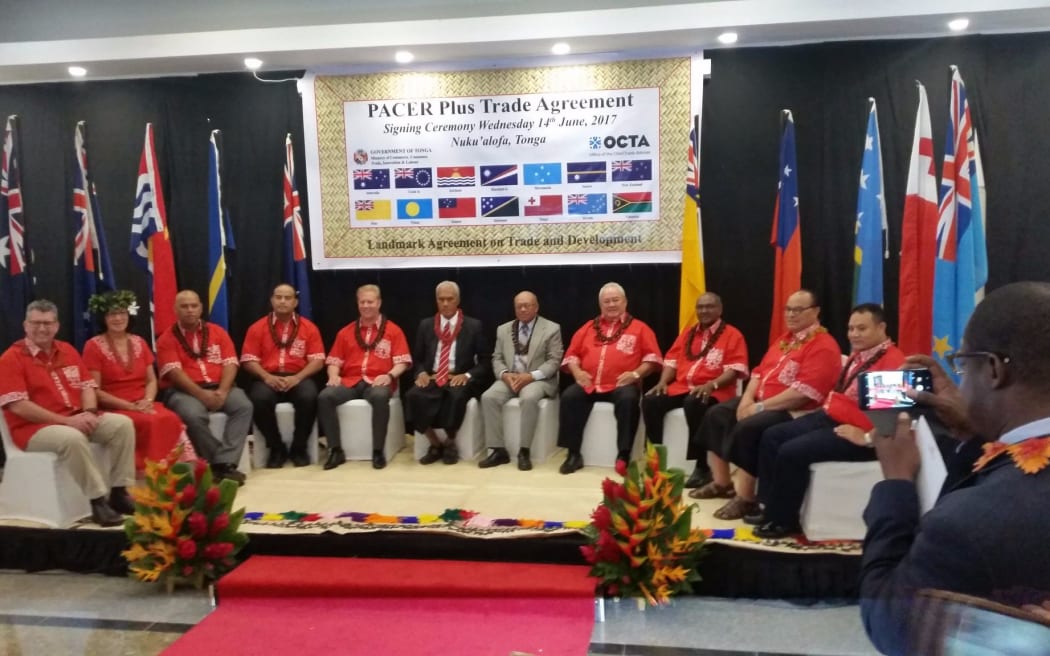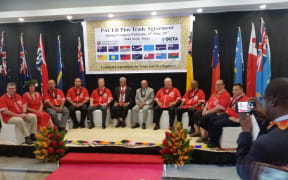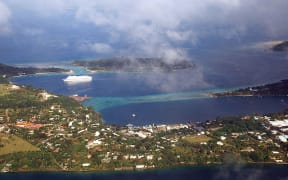A new report says Pacific Island signatories to the PACER Plus trade agreement stand to lose more than $US60 million each year in government revenue if the deal is signed.

Representatives who signed the PACER Plus trade agreement in Tonga Photo: Pacific Islands Forum Secretariat
PACER Plus has faced widespread criticism by campaigners and NGOs for what they say is its preferential treatment of Australia and New Zealand through tariff exemptions.
Analysis released on Wednesday by the Pacific Network on Globalisation (PANG) said the nine Pacific Island countries signed on will suffer significant losses in revenue.
The group's trade justice campaigner, Adam Wolfenden, said the deal needed to be rethought.
"This analysis has finally put on the table from looking at the text is saying this is pretty much everything we feared," he said.
"And in return you see the language from Australia and New Zealand about this deal being a good deal for them because it secures their prioritised access, the market access to the region.
"That's not development for the Pacific, that's development for Australia and New Zealand industries."
PACER Plus was signed last year after eight years of talks and will come into force 60 days after at least eight of the eleven signatories have ratified it.
New Zealand has promised PACER Plus will raise living standards, create jobs and increase exports in Pacific Island countries, and with Australia is providing $US18.5 million in implementation assistance to the free trade deal's signatories.
"Our main objective for PACER Plus is to encourage economic development in Pacific countries," said New Zealand Trade Minister David Parker last month.
But PANG has warned Pacific Island countries against ratifying, claiming it will slash revenue from import taxes and loosen their regulatory controls.
Samoa would lose $US12.5 million each year, the Solomon Islands $US13 million, Tonga $US7.2 million and Vanuatu $US7.5 million, the group's report said. Smaller economies, including the Cook Islands, Kiribati, Nauru, Niue, and Tuvalu would lose more than $US20 million each year.
"Creating a win-win doesn't stack up in reality when all we're going to see is an influx of goods from Australia and New Zealand goods into the Pacific with very little new opportunities or avenues for the Pacific to increase their exports in return," said Mr Wolfenden.
If Papua New Guinea and Fiji, the region's two biggest economies, were to join PACER Plus, the region's losses would jump from $US60.6 million each year to $US245.2 million, the report said.
Although they have yet to sign, this year Fiji has said it is in negotiations with Australia and New Zealand, while Papua New Guinea has said it is reconsidering its stance.
If the two countries signed on, they would be asked to make similar concessions, said Mr Wolfenden, adding the figures should act as a "cautionary tale".






